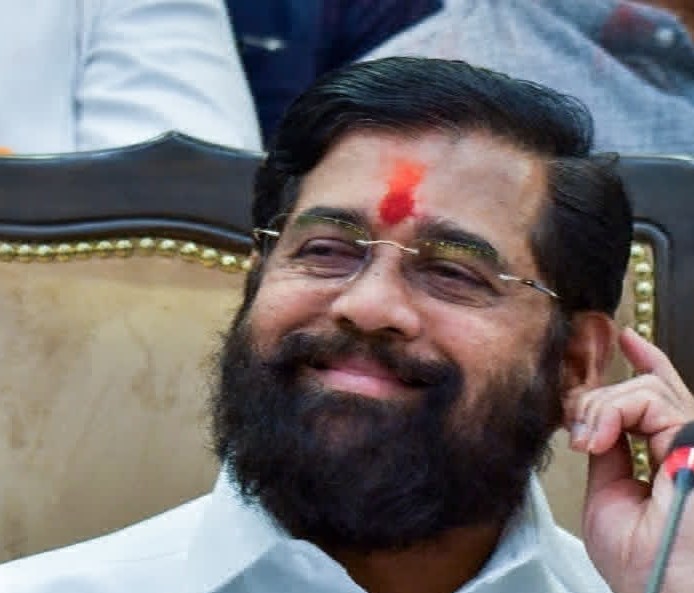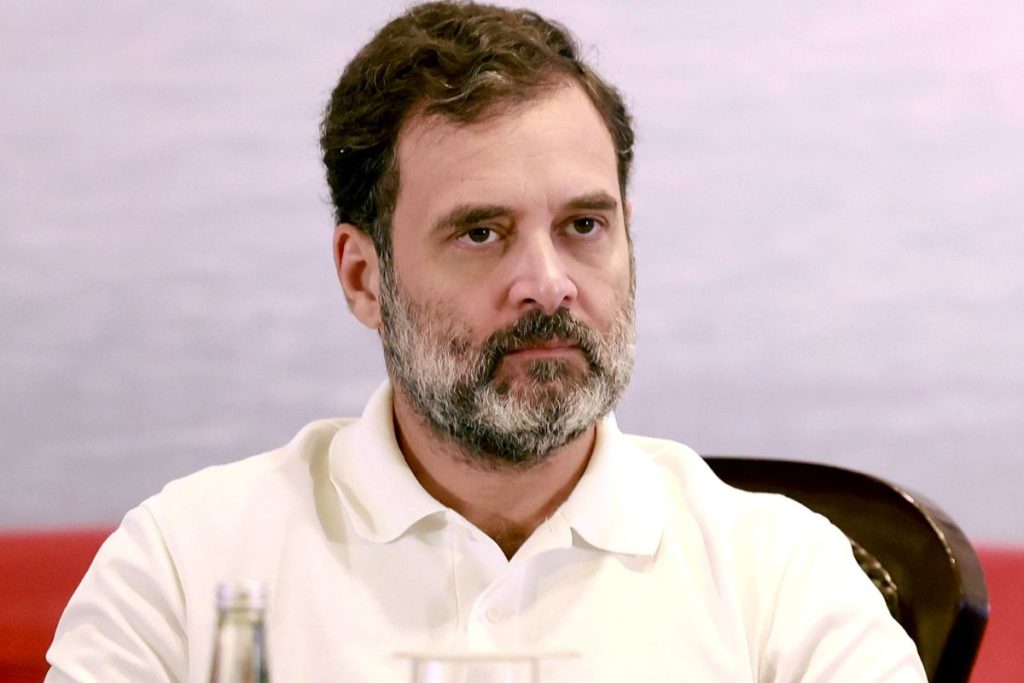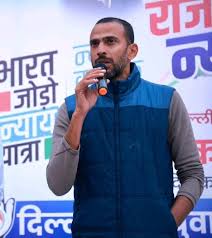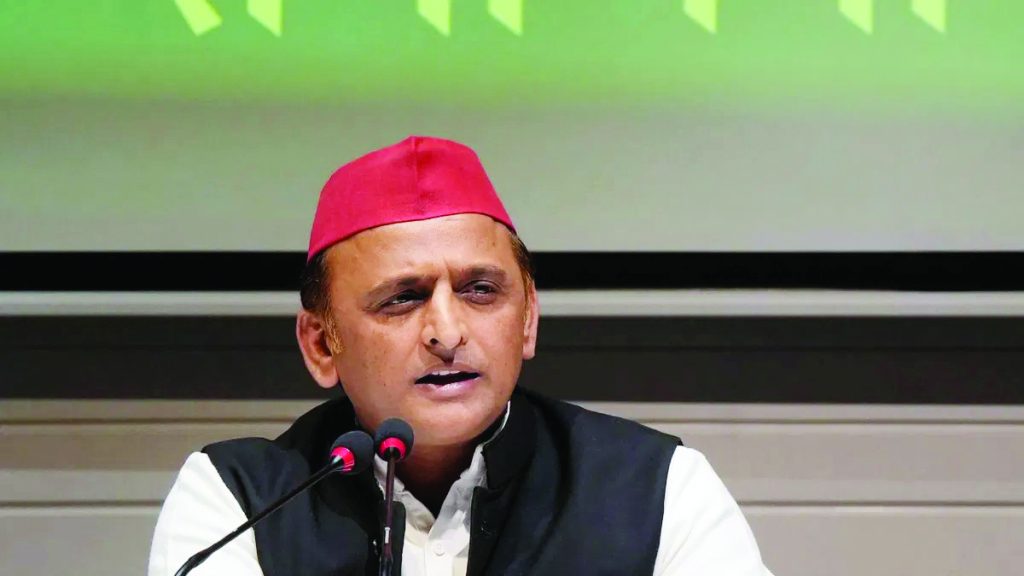Tridib Raman
Delhi’s Ramlila Maidan was packed with a sea of people, buzzing with an electrifying energy. The atmosphere in the saffron camp was euphoric—after all, the moment had arrived when, after a long exile of 27 years, the saffron flag would once again fly over Delhi’s administration. At exactly 12:30 PM, Prime Minister Narendra Modi arrived on stage. After exchanging formal greetings with those present, he took his designated seat next to the Lieutenant Governor of Delhi. As the LG prepared to begin the event with the national anthem, PM Modi unexpectedly stopped him. Glancing at his wristwatch, he requested a five-minute wait. Instead of remaining seated, the PM got up and started warmly interacting with the dignitaries on stage. Along the way, he greeted Chandrababu Naidu with formal courtesy but then enthusiastically engaged with Pawan Kalyan, sharing a moment of camaraderie. Exactly five minutes later, the oath-taking ceremony commenced. As the event concluded, PM Modi stepped down from the stage. Delhi’s newly appointed Chief Minister, Rekha Gupta, stood aside with folded hands. However, a subtle signal from Amit Shah and JP Nadda reminded her of protocol—it was her responsibility to officially see off the Prime Minister. Realizing this, she quickly followed him, almost rushing to fulfill the expected gesture. Rekha Gupta, who had made a meteoric rise from being a first-time MLA to the Chief Minister’s chair, seemed to momentarily struggle with the nuances of formal protocol. And then, a politically significant moment—when PM Modi passed by Chandrababu Naidu while stepping down, he seemingly ignored him. This conspicuous act was bound to spark political speculation.
Will Shinde Be Made a Minister at the Centre?
Tridib Raman

A tense calm before the storm prevails in Maharashtra’s Mahayuti (MVA) politics. There is an uneasy silence between Maharashtra’s Deputy Chief Minister Eknath Shinde and the state’s BJP CM Devendra Fadnavis. Just yesterday, Shinde thumped his chest and declared, “Do not make the mistake of underestimating me.” However, insiders say that after intervention from the BJP top brass, Fadnavis and Shinde had jointly announced a few days earlier: “This government will complete its five-year term.” Shinde even stated, “I am extremely happy in this government.” Subsequently, Delhi instructed Shinde to meet BJP President J.P. Nadda. Instead of going himself, Shinde sent his MP son, Shrikant Shinde, to meet Nadda. Reports suggest Shrikant conveyed his father’s willingness to join the Modi cabinet if offered a “respectful portfolio,” leaving the final decision to Delhi.
In Congress, Only Rahul’s Word Matters
Tridib Raman

Last week, the Congress party underwent a major organizational reshuffle. Party President Mallikarjun Kharge had been working on this for quite some time, carefully preparing a list of new General Secretaries and State In-Charges. Kharge wanted to discuss each name in detail with Rahul Gandhi. However, when he approached Rahul, he was told that due to a packed schedule, a meeting wouldn’t be possible. Instead, Rahul asked him to send the list over for review. Kharge complied, and after reviewing the list, Rahul personally struck off a few names and added four to five of his own choices. He then instructed Kharge to consult Priyanka Gandhi. The revised list was sent to Priyanka, who suggested names like Ajay Kumar Lallu. The finalized list was later made public.
Krishna Allavaru’s Bihar Challenge
Tridib Raman

Since Krishna Allavaru from Karnataka, a close associate of Rahul Gandhi, was appointed as the in-charge of Bihar by the Congress, a political storm has erupted. Current Bihar Congress President, Akhilesh Prasad Singh, views it as a threat to his position. He feels hurt that despite being a senior leader, he has to take instructions from a junior leader like Krishna. Akhilesh rushed to Delhi and bowed his head in Kharge’s court. He then received two programs for Bihar from the President. Kharge had ‘confirmed’ his visit to Motihari on the 18th of February and to Buxar on the 28th of February. Akhilesh was busy with all the preparations to make these programs successful when, just before the event, a message came from the President stating that ‘due to some unavoidable reasons, he is unable to come to Bihar right now.’ On the other hand, Krishna Allavaru was actively establishing his presence in Bihar. Initially underestimated for his Hindi skills, Krishna impressed everyone with his fluent speech at Patna’s Sadaqat Ashram, reiterating Rahul’s past statements. He warned the Congress leaders in a strict tone, saying, “Factionalism will no longer be tolerated here. Those who are circling around Delhi should stop doing so because, in this election, only leaders who work on the ground will get tickets.”
How Parvesh Missed the CM Race
Tridib Raman
BJP’s prominent young Jat leader, Parvesh Verma, came very close to becoming the Chief Minister this time, but fate had other plans. His story is quite intriguing. Parvesh is considered one of Delhi’s seasoned BJP leaders and carries the legacy of his late father, Sahib Singh Verma. This also means he has long-standing connections with several senior BJP leaders. So, when the party leadership was searching for a CM candidate for Delhi, Parvesh tried to push his name forward through key Union ministers like Hardeep Puri and S. Jaishankar. However, this move somehow backfired. Many influential Jat leaders from Rajasthan, Haryana, and western Uttar Pradesh sought an appointment with Amit Shah to advocate for Parvesh’s candidacy, but they never got a call from Shah’s office. When Parvesh finally met BJP President J.P. Nadda, sources say Nadda expressed displeasure over the fact that Parvesh’s wife and son were giving media interviews about his potential selection—something that doesn’t align with BJP’s traditions. To make matters worse, Parvesh’s media advisors created a dedicated WhatsApp group with journalists covering Delhi BJP affairs, where they regularly shared inside updates. This led the media to prematurely report that Rekha Gupta would be the new Delhi CM and Parvesh would take oath as the Deputy CM. However, when the final moment arrived, Parvesh realized that all he was getting was a ministerial post—nothing more.
Akhilesh Upset with Milkipur’s Defeat

Samajwadi Party supremo Akhilesh Yadav is completely taken aback by the party’s huge defeat in the Milkipur by-election. He had no expectations of such poor performance from the party here. During a recently concluded party core committee meeting, Akhilesh lashed out at the leaders present, saying, “The same situation that happened in Mirapur happened in Milkipur, despite the fact that we were in a position to win the Milkipur seat. You insist on getting tickets for your children but are unable to make them win. So, wouldn’t it be better if you let candidates who can actually win come to the forefront?” Sources say Akhilesh had another name in mind for Milkipur, but Faizabad’s SP MP Awadhesh Prasad insisted on giving the ticket to his son, forcing Akhilesh to bow to his demand. The move cost the party dearly.
Modi’s Strategic Choice: Rekha Gupta as CM
There is an ongoing competition to take credit for making Rekha Gupta the Chief Minister of Delhi. Most people attribute this decision to the RSS. However, the truth is that the choice of Rekha Gupta was entirely PM Narendra Modi’s decision. Modi was well aware that while the BJP and its allies currently govern 20 states, not a single one has a female Chief Minister. This is despite the fact that women voters play a crucial role in the BJP’s electoral victories. Moreover, whether intentionally or unintentionally, the RSS has never been perceived as a women-friendly organization. Looking ahead, elections will be held in 21 states by 2028, with 13 of them going to polls in the next few years. These include Bihar at the end of this year, followed by Assam, Kerala, West Bengal, Tamil Nadu, and Puducherry next year. If the BJP wants to position itself as a strong advocate for women’s rights, then it needs a female Chief Minister. Additionally, the Women’s Reservation Bill is set to be implemented soon, and preparations for that must begin now. Modi’s vision is clear: Ahead of upcoming state elections, Delhi’s female CM will be actively promoted to appeal to women voters across the country.
